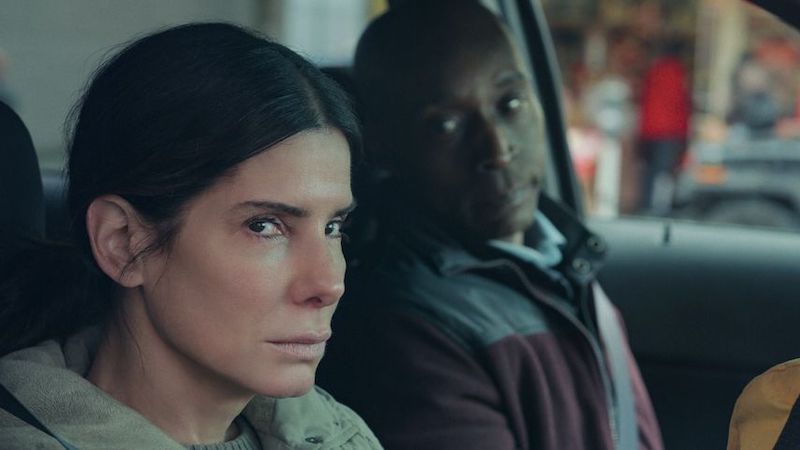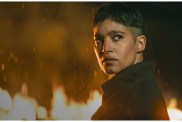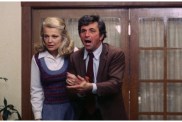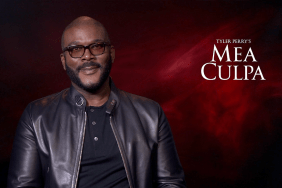The Unforgivable is streaming now on Netflix. The drama features an all-star cast including Sandra Bullock in the lead role. She’s joined by Vincent D’Onofrio, Jon Bernthal, Richard Thomas, Linda Emond, Aisling Franciosi, Rob Morgan, and Viola Davis.
RELATED: The Unforgivable Interview: Vincent D’Onofrio Praises Sandra Bullock’s Transformation in Netflix Drama
“Released from prison after serving a sentence for a violent crime, Ruth Slater (Bullock) re-enters a society that refuses to forgive her past,” reads the logline. “Facing severe judgment from the place she once called home, her only hope for redemption is finding the estranged younger sister she was forced to leave behind.”
ComingSoon Editor-in-Chief Tyler Treese spoke with The Unforgivable stars Sandra Bullock and Rob Morgan to discuss its themes of motherhood, their prep, and more.
Tyler Treese: Sandra, while Ruth isn’t a mother, she still was a provider and kind of took that role after her parents passed. How’s your own experience of being a mother really helped you connect with Ruth as a character and the journey that she goes on in this film?
Sandra Bullock: Everything. I think once you’re a mother, you see everything through those eyes. You see everything is more daunting, more frightening. All of it, all of it, all of it. I guess it raises by the end of this film, I was looking at our cut and I went, ‘Oh my gosh, we’re actually asking the question, what makes a mother?’ An egg does not make you a mother, a contribution of an egg. Science does not make you a mother. Being a parent isn’t always a birthright. Blood doesn’t make you family like Rob’s character says, and here’s a young woman who is forced to be the caretaker of this child that she loves more than anything. Who’s her sister, but because of Ruth’s age and the child’s age, she is the parent. She is the mother. It evokes a lot of conversation, but a mama bear, when you have your children, that’s all that matters is their safety. And the question of what would I have done in Ruth’s position by the end of this film, I would say probably exactly the same thing. Given what Ruth knew of the system, I would’ve done the same thing,
Rob, I’m always curious about prep for roles. What did you do to prepare for playing a parole officer?
To play Vincent Cross in The Unforgivable I researched a lot of parole officers, watching videos, read manuals, things that it would to be a good parole officer, understood the responsibility I had in keeping Ruth Slater on the right path so that she wouldn’t re-enter back into the prison system. Trying to keep my recidivism rate low, which is basically an ode to Bass Reeves, a U.S. Marshall from the 1860s that still to date has the best criminal justice record. So, putting all that in there and then also pulling from my own personal experiences of being a black man in America and understand what it is to have prejudices put upon me from the moment I walk out the door and having those kind of sensitivities toward Ruth just came out the way you saw Vincent Cross in The Unforgivable.
RELATED: The Unforgivable Interview: Director Nora Fingscheidt Talks Netflix Drama
Sandra, in the first half of the film, Ruth rarely speaks. Can you speak to your performance and how you’re able to give off so much emotion in the subtleties and body language rather than dialogue?
Yeah. A lot of conversation with (director of the film) [Nora Fingscheidt] and our DP [Guillermo Navarro] in terms of point of view. Is this shot, the worlds point of view of Ruth? Because if it is, the camera has to be in a different position, it has to have a different perspective. An uglier perspective, a judgmental perspective. So, the shots were designed around who’s looking at her and how are they looking at her? And if it was Ruth’s point of view, the same thing. So every day, it was a conversation of, are you seeing the stance? Is there a stance that…you know, Ruth’s 20 years in prison, she’s gotta protect herself, there’s a way to physically be imposing and to protect yourself and be ready.
So everything was about protection and readiness physically. None of it was about being a lady. None of it was about being attractive. None of it was about presenting yourself in any way, other than someone you need to stay away from. And it was after a while, it was liberating, really liberating. I realized how much artifice I put on based on how I was raised. You shouldn’t sit like that. You shouldn’t do that. And by the end of this film, the question was, why? Does it make me less of a woman? Because I’m more comfortable sitting one way or standing or I’m protecting myself or you pissed me off, I’m getting angry. It was hard to get into, but very liberating and comfortable once I got there.










